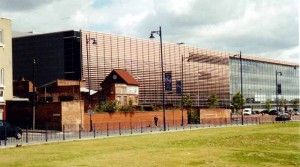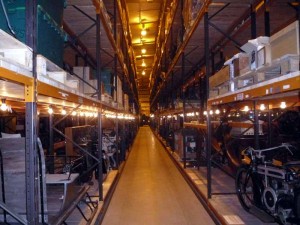By Alan Clawley.
If a service provided up to now by the City Council were handed over to a charitable trust it’s not likely to be the sort of charity you would want to give your money to but, on the face of it, paying a charity to run a council service seems a reasonable idea and not an entirely new one.
Charities don’t make profits at the council taxpayers’ expense and their altruistic approach should sit well with the public service ethos of local government. The council already pays charities under Service Level Agreements to provide services like day care for the elderly rather than do it themselves. So in principle there is no reason why a charitable trust should not be set up to run the Museum and Art Gallery, the Central Library or, indeed, any other council service that can be deemed charitable in law.
Education is one of the so-called ‘heads’ of charity, so a trust providing a civic museum or library can be registered with the Charity Commission and be eligible for various financial concessions. Councillor Whitby favours charities because they are exempt from paying Business Rate on their premises and are therefore cheaper to run than businesses. He seems to have missed the point that this will mean a loss of income for the City Council but he must believe that the reduced cost of providing the service to the council will more than make up for it.
So what exactly is the point of merging the Millennium Point Trust (MPT) and Birmingham Museum and Art Gallery (BMAG) as announced this week?
The history of Millennium Point shows how the Council’s mind works.
When the Council closed its popular free Museum of Science and Industry in Newhall Street, ostensibly to save money, it bequeathed the contents to the MPT who got a grant of £50 million from the National Lottery to build Millennium Point, which it now owns.
Its powerful partners, the Council, University of Central England (BCU) and the Chamber of Commerce and Industry chipped in £8.4 million to get the ball rolling, followed by the European Regional Development Fund with £25.6 million, Advantage West Midlands with £7.4 million and corporate sponsorships to the tune of £7.6 million.
At one end of this somewhat anonymous building, designed by Nicholas Grimshaw, a selection of artifacts from the old Museum was installed. The show was re-branded ‘Thinktank’ and visitors now had to pay to see what was once owned by the City and could be seen for free. What is more, Thinktank was not big enough to hold all of the items donated to it and thousands of pieces were put into a warehouse in Nechells where public access is free but limited to a few open days a year. Millennium Point was opened by the Queen in 2002 and Thinktank claims to have seen a million visitors a year since.
This seems impressive but it amounts to less than 3,000 a day, compared with the 5,000 a day who enter Birmingham’s free Central Library. Apparently only half of them pay the full entrance charge of £12.25 because the annual accounts show the total income for 2009/10 as £6.25 million. No doubt organized school trips form a large part of their clientele and provide a steady income when times are hard.
The Council must believe they have emerged well from the deal and want to take it a step further.
They have rid themselves of the annual cost of running the old Museum of Science and Industry. They have found a new home for some of the city’s cultural heritage at an initial cost of a few million and now spend a minimal amount renting a warehouse in which to store the rest. The cost of running Thinktank is met entirely from entrance charges whilst the Council knows it would face a popular uprising if it tried to levy entrance charges on BMAG.
Councillor Mullaney strenuously denies that merging BMAG with Thinktank will result in the Council introducing charges, but he leaves the door open for MPT to do so when the two are merged. Then he could conveniently claim that it was not the Council ‘s decision but an economic necessity for the charity.
Other than employing fewer staff or paying them lower salaries it is hard to see where else savings could be made by a charity such as MPT.
MPT may, possibly, lease the existing BMAG premises – a rambling Victorian structure not a brand new building with low maintenance costs.
The last piece in the jigsaw could be the pension rights of BMAG staff.
Government is keen to equalize the cost of pensions between the public sector and the third – or private sectors – to make transfer to private companies or charities easier and less costly than at present. As we have seen from recent demonstrations and strikes, this is an issue that has enraged the normally quiescent teachers, so the Council can expect trouble from Unison’s members over any transfer of cultural services to a third party, charitable or otherwise.




